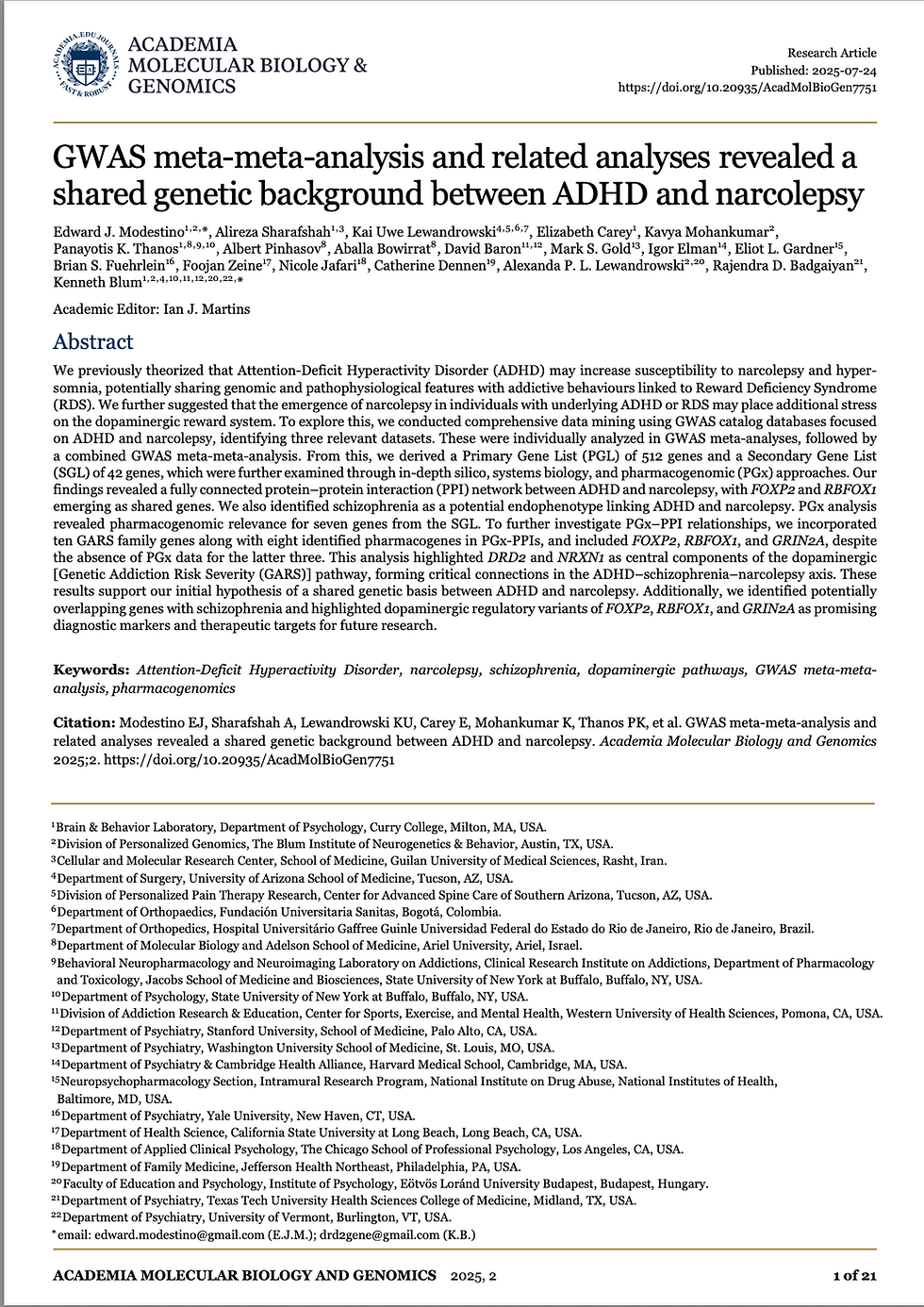Info Dumping and Neurodivergence
- Edward Justin Modestino, Ph.D.

- Mar 29, 2025
- 3 min read

Info-dumping is an interesting style of communication commonly associated with neurodivergent individuals such as those with ADHD and Autism. It usually involves oversharing large amounts of information, often in incredible detail and about a specific topic of interest. This behavior is usually driven by enthusiasm and a desire to feel connected. It can often be overwhelming to neurotypical listeners. Understanding this style can help foster better communication and inclusivity within the neurotypical space.
When you look at ADHD, for example, this can also be associated with a need to “dump” information quickly. This can be associated with struggling to maintain focus and impulsivity with the need to blurt out thoughts and opinions. When you look at autistic youth who often struggle to “read the room” and instead talk at length about preferred topics. This is done with limited regard for their partners’ feedback or input, as well as the phenomenon of “info-dumping” as described by autistic adults (Whelan, 2020). With info-dumping, specific interests can become areas of deep and almost hyperfocus. When discussing these topics, neurodivergent individuals may share historical facts, details, or technical information at a rapid and impulsive pace. Sometimes, when these conversations take place, the speaker is no longer gauging whether the listener is even paying attention anymore. Casual small talk can feel awkward or draining, as opposed to info-dumping, which would feel more energizing and fulfilling.
Info-dumping is not just the act of talking at someone; it is a form of connection. Many neurodivergent individuals derive joy and excitement from being able to share their knowledge. They are not looking to dominate the conversation, but desire to contribute and show shared interest.
So, why info-dump? For neurodivergent people, these interests can be intense, leading to long monologues about their favorite interests. While social norms for neurotypical individuals prioritize reciprocal conversation, neurodivergent people may share what they love and are less interested if others are not as excited as they are. Additionally, some individuals process information externally, needing to verbalize thoughts to make sense of them. Sometimes, this can lead to long and overly detailed explanations. Many neurodivergent people struggle with reading body language, social cues, and facial expressions. They may not realize when they are talking too much or that the listener is overwhelmed with the conversation. While info-dumping is often done with good intentions, it can sometimes lead to misunderstandings. Neurotypical listeners might perceive it as one-sided or overwhelming, leading to social friction. Some people may interpret it as a lack of interest in their thoughts or an inability to maintain a balanced conversation. Neurodivergent individuals may also feel rejected or hurt if their info-dumping is dismissed, especially if they struggle with social rejection in other areas. Unfortunately, this can lead to masking and suppressing their natural communication style to try to fit in.
How do we best support a neurodivergent person? Instead of shutting down an info dump, we can ask questions and be more engaged. Even small acknowledgments can make the individual feel valued. If the conversation becomes too overwhelming, sometimes it’s okay to set boundaries in a kind way. One might suggest continuing the conversation later. Additionally, for a neurodivergent person, practicing turn-taking in conversations can improve communication and engagement.
Understanding info-dumping as a form of connection rather than an imposition can lead to more inclusive and meaningful interactions between neurodivergent and neurotypical individuals.
References
Whelan, Christopher. (2020, July 16). Infodumping: Autistic Love language. Autistic Rights



Comments